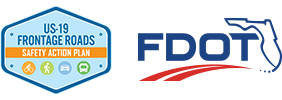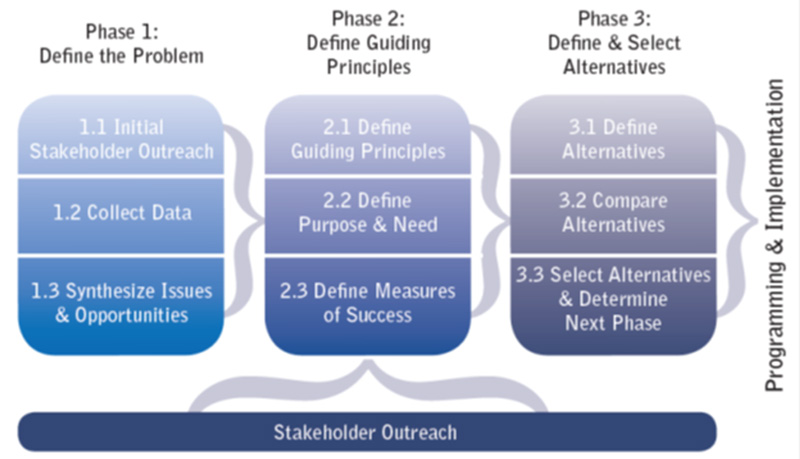The Florida Department of Transportation (FDOT) Visit FDOT’s website, District Seven is conducting a safety action plan along US 19 frontage roads, which begin north of 49th Street and end north of SR 580 (Main Street).
The study will document existing multimodal corridor needs, existing and future travel needs, and community visions and desires along US 19. Because the role of the frontage roads is to provide access to corridor destinations, travel needs will focus on local demand, with the assumption that US 19 will continue to serve regional trips. In order to plan and design for the unique areas along US 19, the corridor will be divided into segments based on Context Classification. Based upon an understanding of the corridor needs, the CONSULTANT will evaluate a range of possible improvement scenarios, from location-specific multimodal improvements to corridor-wide typical section changes to recommended changes to City and County land use codes.
The process will begin with engaging local agencies and corridor stakeholders. The collaboration between the Department and key stakeholders will include establishing a Project Advisory Group (PAG) comprised of agency staff from the various units of the Department (planning, design, traffic operations, and program management); Forward Pinellas; the Cities of Pinellas Park, Largo, and Clearwater; Pinellas County; and PSTA. The business and land owners along the corridors will be engaged at key milestones through series of focus groups to help the Study Team better understand the challenges along the corridor and the vision for the future.
The Study will include: defining the problem, defining the purpose and need, and defining and selecting alternatives. Concept Development will be conducted under a separate scope of services that will be scoped after alternatives have been developed.
Phases of the Study
The project teams’ focus is in integrating Context-Sensitive Solutions (CSS) within the land-use and transportation planning processes to assist communities in reaching their livability goals by encouraging the consideration of land use, transportation and infrastructure needs in an integrated manner.
The study is broken down into three phases, each with its own technical and public involvement focus.
Phase 1: Defining the Problem:
Identifying Issues & Opportunities through:
- Effective Stakeholder Engagement
- Review of Previous and Ongoing Planning Studies
- Traffic Data Analysis
- Safety Analysis
- Future Travel Patterns and Multimodal Needs
Phase 2: Defining Purpose & Need
Derived from data and analysis related to stakeholder values and priorities built and refined through:
- Guiding Principles
- Evaluation Criteria / Metrics
Phase 3: Identifying and Evaluating Multimodal Alternatives
The development of:
- Land Use Scenarios
- Alternatives Evaluations
- Technical Assessments
The Study will result in a Corridor Alternatives and Strategies Report that documents the guiding goals and objectives along with a summary of the range of multimodal solutions identified to address the corridor mobility needs. Recommendations will be developed in an environment that encourages input and collaboration from stakeholders, as well as from various units within FDOT. Results from the study will be crafted into an implementation plan that will include long-term strategies that support future development within the corridor, as well as specific improvements that can potentially be advanced in the near term through local agency participation and/or by FDOT as Resurfacing, Restoration, Rehabilitation (3R) projects, safety enhancements or push-button projects, such as traffic operations signal re-timing projects.

